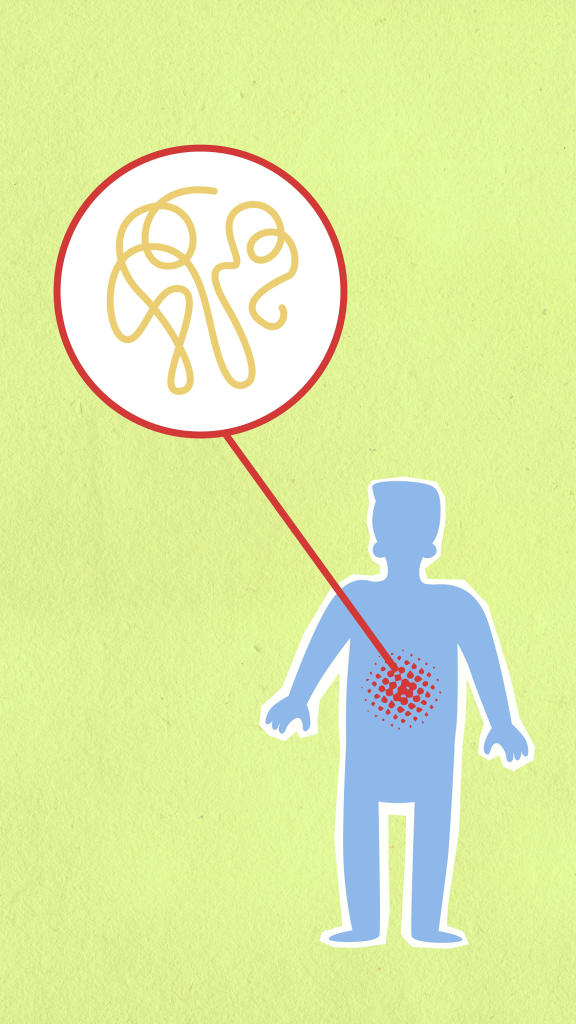The field of nutrition science has experienced significant advancements in recent times, with one of the most fascinating being nutrigenomics. This relatively new discipline seeks to understand how individual genetic variations influence how we process, respond to, and benefit from the foods we eat. Essentially, nutrigenomics merges the worlds of genetics and nutrition, offering insights into personalized nutrition based on genetic makeup.
As science moves closer to the possibility of personalized healthcare, nutrigenomics is becoming an essential tool in tailoring diets that not only promote general health but also address unique nutritional needs. In this blog post, we’ll dive deep into what nutrigenomics is, how genes can impact nutritional needs, and the potential it holds for the future of health and wellness.
What is Nutrigenomics?
Nutrigenomics, sometimes referred to as nutritional genomics, studies the relationship between nutrition and genes. It investigates how specific nutrients and diet choices can influence gene expression, and conversely, how an individual’s genetic makeup can determine their response to certain foods.
Essentially, nutrigenomics aims to answer two key questions:
- How do the nutrients and compounds in our food affect our genes?
- How do variations in our genes affect how our bodies react to nutrients?
The premise behind nutrigenomics is rooted in the fact that humans are genetically diverse, and these genetic differences can influence everything from how we metabolize carbohydrates and fats to how we absorb vitamins and minerals. While traditional nutritional advice often takes a one-size-fits-all approach, nutrigenomics offers the possibility of personalizing dietary recommendations for optimal health.
Join Our Mailing List
Register now to get our hints and tips newsletter directly to your inbox
How Genes Influence Nutrition
To fully understand how genes impact our nutritional needs, it’s important to first grasp the concept of genetic variation. Our genetic code consists of sequences of DNA, and the particular arrangement of these sequences dictates everything from our hair color to our susceptibility to certain diseases. One key type of genetic variation is the single nucleotide polymorphism (SNP), which occurs when a single DNA building block (nucleotide) differs between individuals.
SNPs can affect how genes function, which in turn can influence how we respond to different nutrients. Some of these SNPs are involved in metabolism, nutrient absorption, and detoxification processes. Below are some key ways in which genetic variations can affect nutritional requirements:
1. Vitamin Absorption and Metabolism
Some people may have genetic variants that affect how efficiently their bodies absorb or metabolize certain vitamins. For example, variations in the MTHFR gene (methylenetetrahydrofolate reductase) can impair the body’s ability to convert folate (vitamin B9) into its active form, which is essential for processes like DNA synthesis and repair. Individuals with this variation might need higher amounts of folate or its active form (methylfolate) to meet their nutritional needs.
Similarly, certain SNPs in genes related to vitamin D receptors can affect how well the body uses vitamin D, a nutrient critical for bone health, immune function, and inflammation control. People with these variations may need to consume more vitamin D or spend more time in the sun to maintain adequate levels.
2. Fat and Carbohydrate Metabolism
Genetic differences can also affect how we metabolize fats and carbohydrates. For instance, variations in the APOA2 gene (apolipoprotein A-II) can influence how individuals process dietary fat. Research suggests that people with certain variants of this gene may be more prone to weight gain when consuming a diet high in saturated fats compared to those without this variant.
On the carbohydrate side, variations in the TCF7L2 gene (transcription factor 7-like 2) have been associated with an increased risk of type 2 diabetes. This gene affects insulin secretion and glucose metabolism, meaning that individuals with certain TCF7L2 variants may need to limit their intake of refined carbohydrates to better regulate blood sugar levels.
3. Caffeine Sensitivity
Ever wondered why some people can drink coffee late into the night and still fall asleep, while others get jittery after just one cup? The answer lies in genetics. Variations in the CYP1A2 gene, which encodes an enzyme responsible for breaking down caffeine, can dictate how quickly or slowly an individual metabolizes the stimulant. Fast metabolizers can tolerate higher amounts of caffeine, while slow metabolizers may experience adverse effects like anxiety or disrupted sleep after consuming even moderate amounts.
4. Lactose Intolerance
Lactose intolerance is another example of how genes affect nutrition. The ability to digest lactose, the sugar found in milk, depends on the presence of the enzyme lactase, which is encoded by the LCT gene. In many people, lactase production declines after childhood, leading to difficulty digesting dairy products. However, certain genetic variations allow some individuals to maintain lactase production into adulthood, enabling them to consume lactose-containing foods without discomfort.
5. Antioxidant Needs
Some genetic variations can affect the body’s ability to manage oxidative stress, a process that can lead to cell damage and aging. For instance, variations in the SOD2 gene (superoxide dismutase 2) may impair the body’s ability to neutralize free radicals, which are harmful molecules generated by environmental factors like pollution and unhealthy foods. People with this variation might benefit from diets rich in antioxidants, such as vitamins C and E, to help counteract oxidative stress.
The Promise of Personalized Nutrition
The goal of nutrigenomics is not just to identify genetic variations but to translate these insights into actionable, personalized nutrition advice. By understanding how your genes affect your nutritional needs, you can optimize your diet to prevent diseases, maintain a healthy weight, and improve overall well-being. This personalized approach to nutrition offers several key benefits:
1. Disease Prevention
Nutrigenomics has the potential to play a crucial role in disease prevention. For instance, by identifying genetic predispositions to conditions like heart disease, diabetes, or cancer, individuals can make dietary choices that help mitigate these risks. If you have a genetic variant associated with poor cholesterol metabolism, for example, you may benefit from a diet low in saturated fats and cholesterol to reduce your risk of heart disease.
2. Optimal Weight Management
Traditional weight loss advice often fails to consider the genetic factors that influence how individuals respond to different diets. Nutrigenomics can help tailor weight management strategies to each person’s genetic profile. If you’re genetically predisposed to store fat more easily when consuming a high-carb diet, shifting to a lower-carb, higher-protein diet might yield better results. On the other hand, some people might do better with a diet high in healthy fats and moderate in carbs, depending on their genetic makeup.
3. Enhanced Athletic Performance
For athletes, nutrigenomics offers the possibility of optimizing performance through tailored nutrition. Certain genes, such as those involved in muscle fiber composition, can influence how well you perform in endurance versus power-based activities. By understanding these genetic predispositions, athletes can adjust their diets to fuel their bodies for peak performance. For instance, some athletes may benefit from higher carbohydrate intake for endurance events, while others may thrive on a higher protein intake for strength-based activities.
4. Improved Mental Health
There is growing evidence that diet can play a significant role in mental health, and nutrigenomics may help fine-tune this relationship. For example, some people have genetic variations that affect how their bodies synthesize and process neurotransmitters like serotonin and dopamine, which are linked to mood and mental health. Understanding these genetic factors can help individuals adjust their intake of nutrients like omega-3 fatty acids, B vitamins, and magnesium, which are crucial for brain health and mood regulation.
The Future of Nutrigenomics
Nutrigenomics is still a relatively young field, and while it holds immense promise, there are challenges to overcome. One of the biggest challenges is the complexity of gene-diet interactions. The human body is incredibly intricate, and while we can identify certain gene-nutrient relationships, many others remain unknown or poorly understood.
Moreover, environmental factors such as lifestyle, stress, and exposure to toxins also play a role in how our genes are expressed. This means that while nutrigenomics can offer valuable insights, it should be viewed as one piece of the puzzle rather than a definitive guide to health.
As research advances and technology improves, we can expect nutrigenomics to become more accessible and affordable. In the future, it’s likely that genetic testing will become a routine part of healthcare, allowing individuals to receive personalized dietary advice based on their unique genetic makeup.
Conclusion
Nutrigenomics represents an exciting frontier in the quest for personalized healthcare. By understanding how our genes affect our nutritional needs, we can move beyond generic diet advice and embrace a more individualized approach to health and wellness. While there is still much to learn, the potential of nutrigenomics to prevent disease, optimize performance, and enhance overall well-being is undeniable. As science continues to unravel the complexities of gene-diet interactions, we are moving closer to a future where personalized nutrition is the norm, leading to healthier, happier lives.




